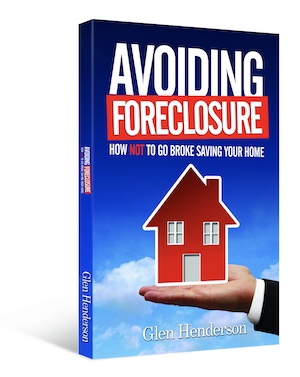Who Qualifies for a Loan Modification?
Loan modification attempts to offer assistance to homeowners who might suffer from foreclosure. There are situations in which reduced monthly payments could solve the foreclosure. To qualify, families must document financial hardship and demonstrate the ability to meet monthly payments if they were modified.
Basically, you won’t qualify for most loan modifications if your financial situation has not changed. And you won’t qualify for loan modifications if you completely lose your income. You need to demonstrate that (1) something has occurred which makes it tough to pay your mortgage, but (2) not something so bad that you won’t be able to pay your mortgage at all. Maybe you took a pay cut at work or you lost part of your income. Maybe you’ve had a family emergency or hardship which is eating into your finances.
Regardless, you have to show that you can still make loan payments on your mortgage if they were only a little bit lower.
Qualifying for Loan Modification
What Kind of Financial Hardships Qualify?
Different lending solutions will be willing to work with you in different ways. Usually the financial hardship must be enduring or have effects that are enduring. If you work on commission and have a great track record, one bad year will probably not allow you to qualify for a modification. But if you lose your job or suffer from a new and serious illness, you might be able to qualify.
You’ll also only be able to qualify if you lack the kind of cash reserves that allow you to keep making mortgage payments. For example, if you lose your job but have a ton of savings and easily liquefiable capital, your loan modification will probably not be granted. Most financial institutions require that you lack extra funds on hand.
Affording Different Payments
Even if you lose your job or lose a source of income, you probably won’t be approved for a loan modification if you can still meet your mortgage payments. If your salary is cut in half but you’re still able to afford loan payments, you probably won’t get a modification.
Alternatively, if you’re going to end up in default, you won’t get a modification. A lender will only work with you if they think that you will avoid default through a modification. If you’re going to default in spite of a modification, they will allow the process to play out even quicker.
You’ll still need a relatively good credit history and score to qualify. Lenders want to see that what has happened really is an unusual financial hardship. They want to bet on someone who will pull themselves out and who can come up with a plan.
Loan modifications, ultimately, are possible only if the lender is convinced you can afford to make different payments. If you think that you can show this is the case, and lack the cash reserves and resources to get through your current payments, apply for a modification.
What’s the Difference between Modification and Refinancing?
Refinancing can move your mortgage payments up or down, depending on your credit score and financial situation. Some people make a number of on-time payments on a 30-year mortgage for a couple decades and then are able to refinance the final part of the loan for a better deal. Other people need to lower their monthly payments and refinance for a longer term, taking on a higher interest rate as a compromise. Refinancing is for people with relatively good credit who are in a position that they can leverage for a different type of mortgage.
Modification, on the other hand, is for people who are experiencing financial hardship. Refinancing pays off your current mortgage with a new one, but modification alters the terms of your current mortgage.
How to Get a Loan Modification
The federal government has had a variety of loan modification programs in the past, like HARP and HAMP. Those programs have currently expired, however. But you can certainly check HUD—the making home affordable division of the federal government. You’ll get additional information on current programs and government assistance.
Negative Impacts of Loan Modification
There are a few potential negative impacts of modifying your loans. First of all, this will probably be added to your credit report and could damage your credit score. Foreclosure is worse for your credit score, but loan modification is also bad.
Additionally, many loan modification programs are only temporary. It’s a great short-term solution but it might require you to return to higher payments in the future. You probably don’t want to think about loan modification as the final solution, but rather as a temporary solution which buys you time to find a long term solution.
Finally, when you modify your loan, the term of the mortgage is usually extended. It will take you a lot longer to pay off the loan and you’ll pay a higher lump sum because of additional interest.




